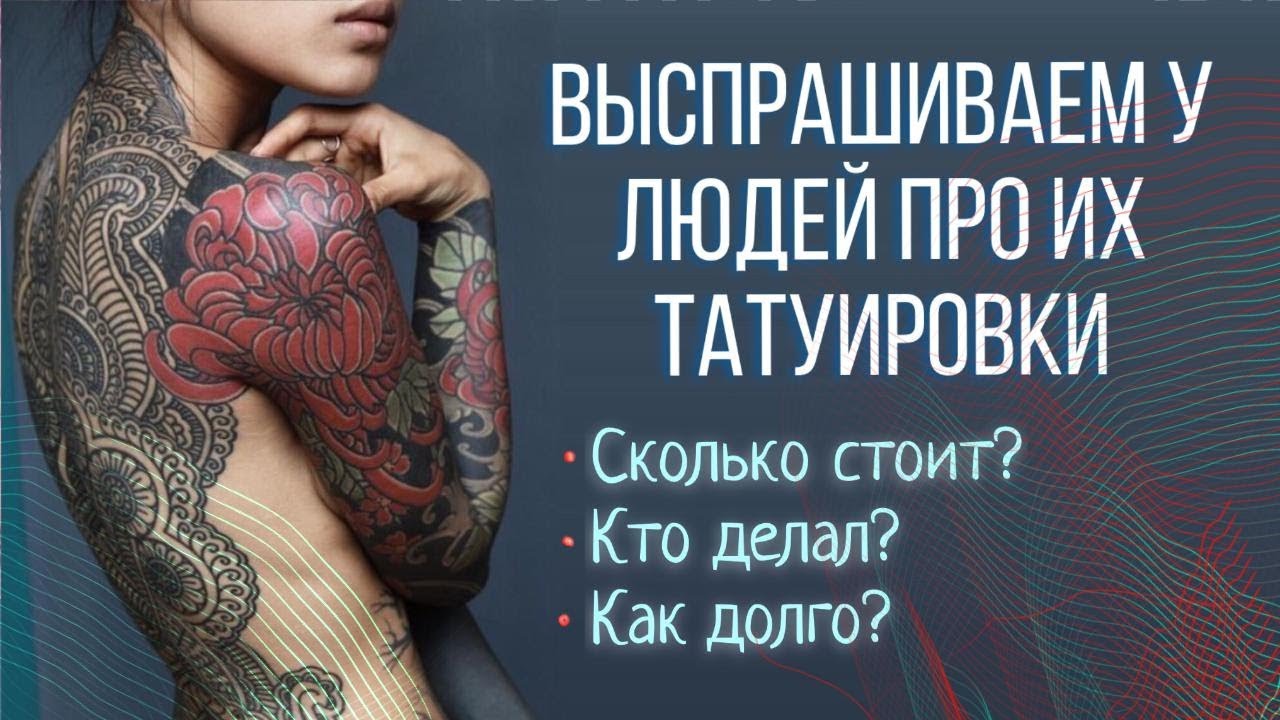
Tattoo and cultural appropriation: why your tattoo can be problematic
Contents:
Now it seems that everyone has tattoos. Studies show that 30% to 40% of all Americans have at least one tattoo. The percentage of people who have two or more tattoos has increased over the last decade. Tattoos have become completely normal and an undeniable part of self-expression these days.
But do we all know the meaning of our tattoos? Do we consider that we may culturally appropriate a certain design just to satisfy ourselves with the design? These are questions that have arisen in the last few years in the global debate about cultural appropriation.
It turns out that people are aware that their tattoos are inspired by a certain culture or tradition, but many people don't even know that their tattoos are culturally adapted.
In the following paragraphs, we'll talk more about the connection between tattoos and cultural appropriation, and why your tattoo might be problematic. So, without further ado, let's get started!
Cultural appropriation and tattoos
What is cultural appropriation?
According to the Cambridge Dictionary, cultural appropriation is;
So, to culturally appropriate means to adopt the cultural elements of a particular group or minority that are members of that culture. This issue has become very topical in the last few years, when more and more people began to casually adopt the clothes, hairstyles, accessories, etc. of certain cultures.
To this day, cultural appropriation as a topic is still controversial, as some people believe they have the right to wear whatever they want, as long as it doesn't offend anyone, while others feel that elements of other people's culture should not be used. by anyone. other than members of the culture.
Why are tattoos part of the cultural appropriation debate?
From the 16th to 18th centuries, as European countries discovered and colonized parts of the world, with Captain James Cook as the leader of the movement, the natives also introduced them to the art of tattooing.
Therefore, in Europe, tattoos were considered barbaric and a sign of inferiority, which was closely related to ignorance of the culture and traditions of other people and the belief that they were also barbaric and inferior.
After a while, tattoos became a very attractive phenomenon in Europe, especially among members of the royal family, who, going to "exotic lands", got a tattoo as a souvenir. These were traditional and cultural tattoos, which then became popular in their homeland among the general public. Soon, traditional tattoos lost touch with their cultural origins and became simply something that rich people do when they travel.
As you can see, from the day tattoos became a global phenomenon (in the eyes of Europeans), cultural appropriation began.

Now the situation is not so specific. Tattoos have become available all over the world for every person, so who can really keep track of the designs and where they come from.
But some people get tattoos using symbols and elements taken from other cultures; cultures that these people have no idea about. For example, remember when Japanese kanji characters were a popular tattoo choice; no one knew what these symbols meant, but people wore them anyway.
Another example is from 2015 when an Australian tourist visited India. He had a tattoo of the Hindu goddess Yellamma on his lower leg. He was arrested because the tattoo and its placement on his lower leg were considered extremely disrespectful by the locals. The men felt that he was threatened, harassed and attacked because of the tattoo, while the locals felt that their culture and traditions were not respected.
That is why the issue of cultural appropriation in the world of tattoos has become a major topic of discussion. No one can say they didn't know what their tattoo means when everyone is just a click away from Google and the information they need. But still, people find excuses and tend to justify their choices with acceptance of ignorance and a simple "I didn't know".
What can you do to avoid culturally appropriate tattoos?
Well, we think tattoo people and tattoo artists need to be educated before they choose a certain design. Making an informed decision is the key to preventing cultural appropriation and possible offending of someone's culture and traditions.
The complexities involved with different tattoo designs can be overwhelming. It is impossible not to ask; Where is the line between appropriation and design inspiration?
A line is when someone replicates the exact cultural and traditional symbols of tattoos. For example, tribal tattoos should be a line. Even though tribal tattoos are quite popular, they should only be done by members of the culture and traditions of the "tribe" and no one else. Why you may ask.
The reason for this is that these tattoos have a special meaning regarding heritage, lineage, ancestry, religious beliefs, social status within the tribe, and more. So unless you're part of the culture, there really isn't anything that links you to any of the aforementioned tribal tattoo symbols.
What do tattoo artists think of this?
Most tattoo artists believe that using someone's culture (without proper knowledge of it) for some benefit is wrong and culturally appropriative. However, some tattooists also don't have a problem with cultural judgment when one gives back to the community where the tradition comes from.
For example, if you go and get a tattoo in Japan by a Japanese tattoo artist, you pay the artist and give back to the culture. They compare it to, for example, going to a country and buying a piece of art there; you buy it and give it back to the community.
But, again, there's the issue of the design you get and whether they're appropriate and offensive to small communities at home. Moreover, the line between appreciation and appropriation is thin.
What tattoos are culturally acceptable?
If you want to get a tattoo but want to avoid culturally acceptable designs, here are some of the tattoos/drawings you should avoid:
- Ganesha - hindu god tattoo with elephant head
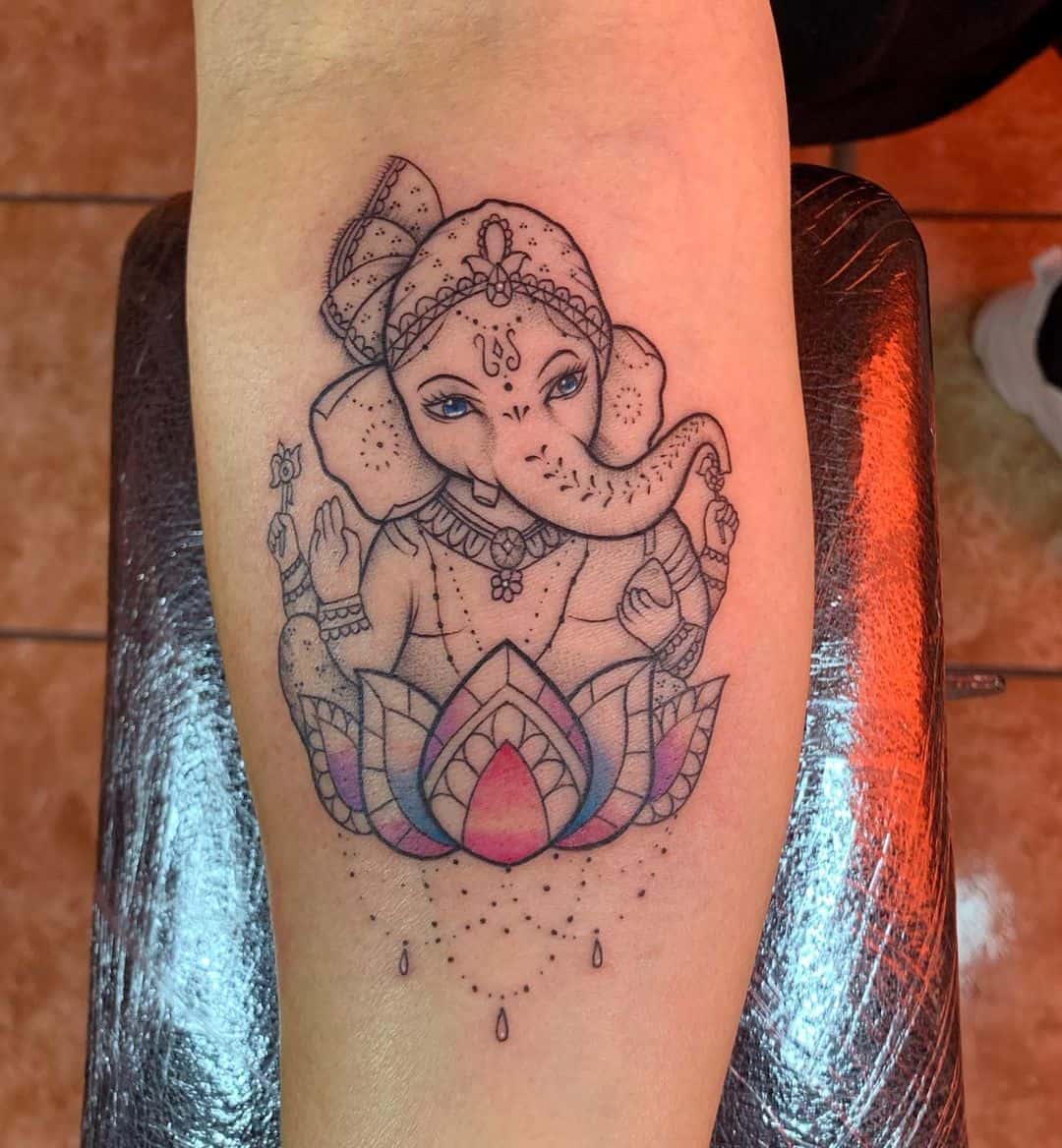
Ganesha, also known as Vinayaka and Ganapati, is one of the most revered and famous Hindu gods and deities. Images of Ganesha can be found throughout South and Southeast Asia.
Ganesha is an elephant-headed god, revered as the remover of obstacles, the patron of the sciences and arts, as well as the Deva (or perfection) of intelligence and wisdom. Naturally, the image of Ganesha should not serve as a source of tattoo inspiration for those who are not part of the Hindu culture.
- Indian tattoos
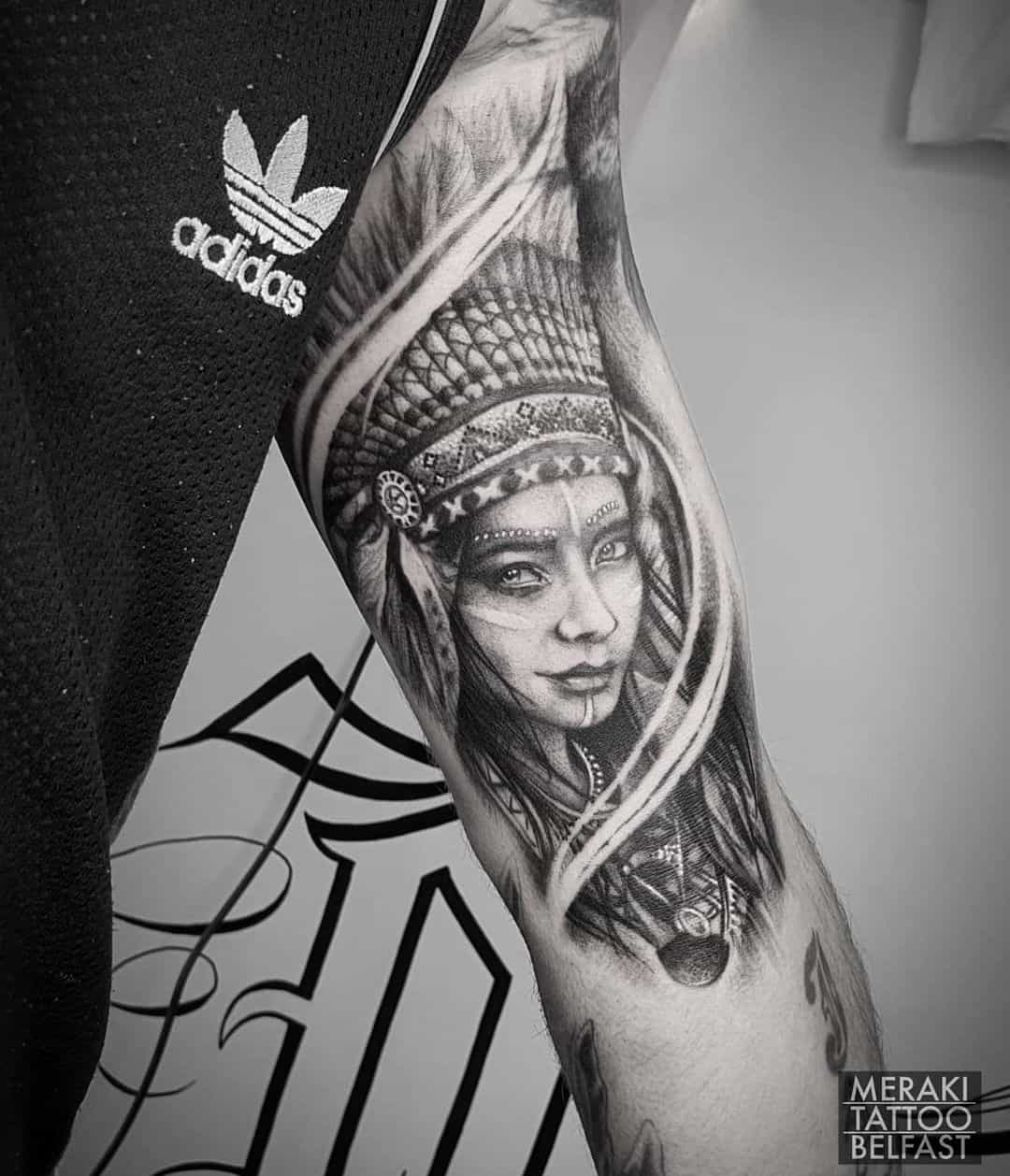
Native American tribal tattoos carry deep meaning and symbolism. For many years, they have been used by Native Americans as a form of tribal distinction, as a status symbol, or as a symbol of heritage and ancestry.
Thus, if you are not of Native American origin, heritage, or culture, it may be considered culturally acceptable to get a tattoo that depicts Native Americans or some Native American symbolism. Symbolism includes an Indian wearing a headdress, spiritual animals such as an eagle, bear, wolf, arrows and dream catchers, tribal symbolism, etc.
- Maori Tattoos
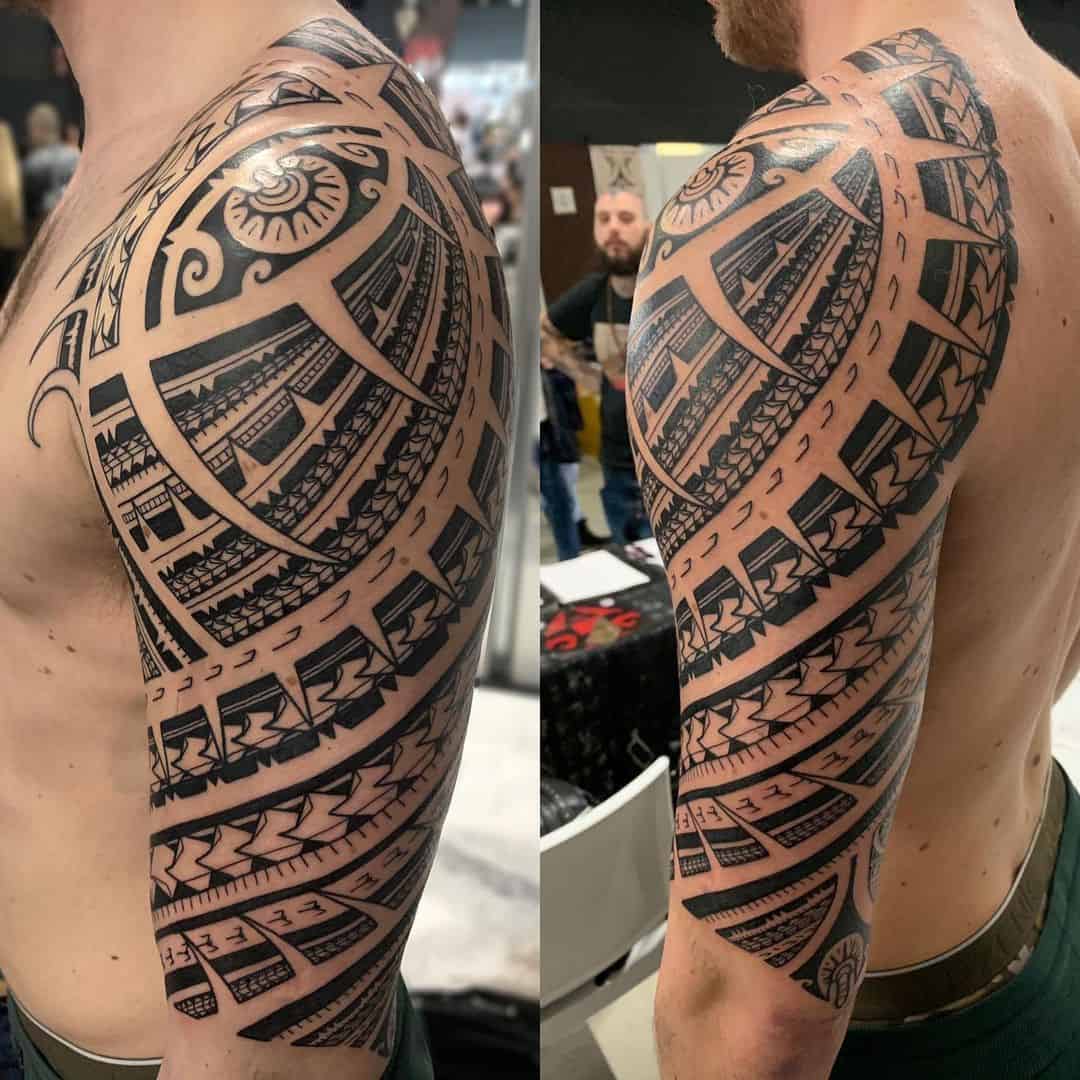
Traditional Maori tattoos (also known as Ta Moko) have been used by the culture for centuries. From the first discovery of the Maori people when Europeans arrived in New Zealand, to this day, people all over the world use traditional Maori tattoos as inspiration for their own "unique" tattoo design.
However, these tattoos are considered culturally acceptable as they are directly related to the wearer's tribal affiliation and family history. Therefore, it makes no sense for a non-Maori person to wear such a tattoo design.
- Sugar skull or calavera tattoos
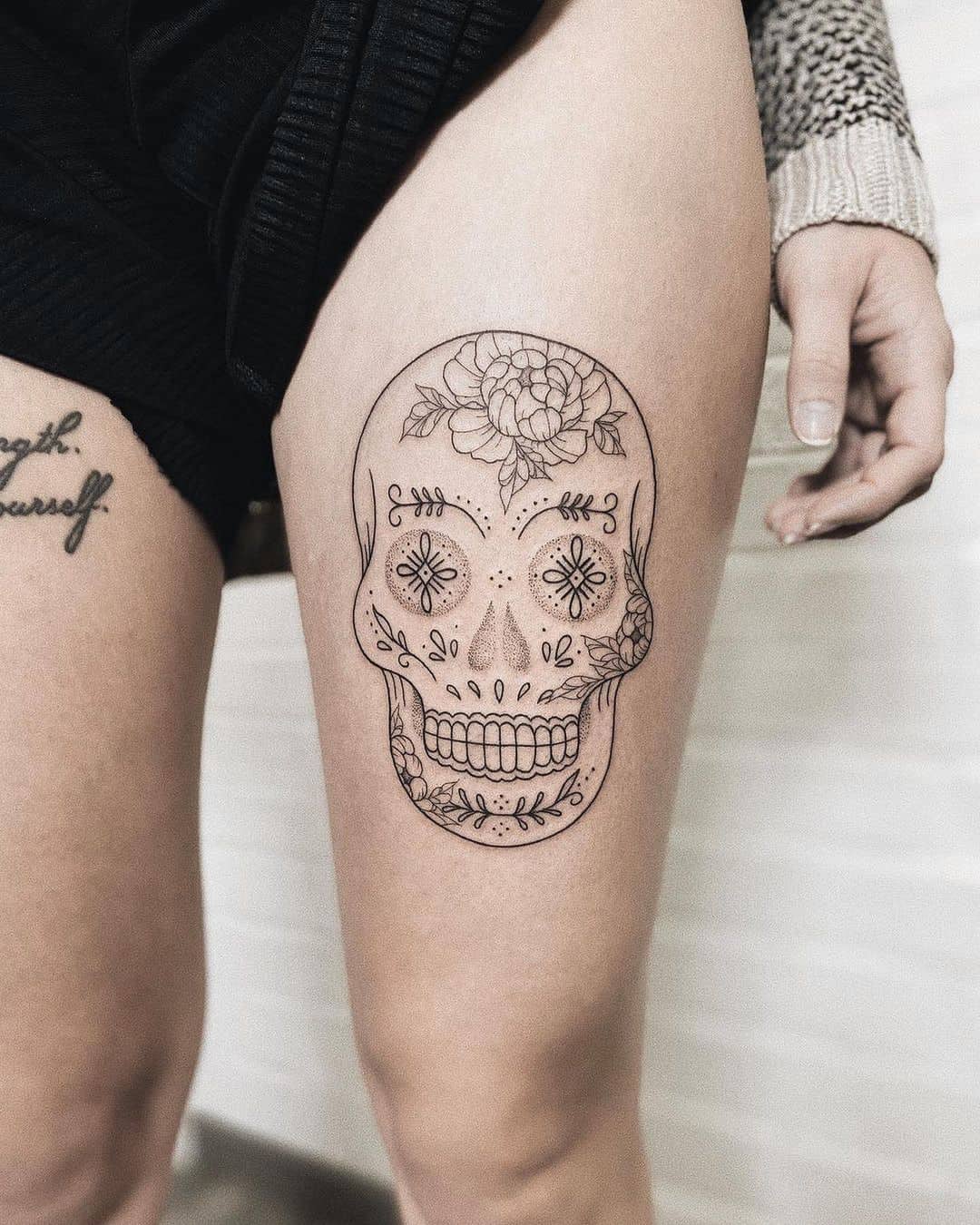
The sugar skull or calavera is a human skull symbol associated with the celebration of the Day of the Dead (Dia de Muertos), which is an important part of Mexican culture. The day has its origins in Aztec culture and traditional rituals when people honor a deceased, beloved member of the community. The celebration takes place in place of mourning and traditional funerals. Hence the colorful skull tattoos.
Therefore, getting this tattoo is considered culturally acceptable for anyone who is not of Mexican descent. The Calavera skull is a traditional symbol deeply rooted in centuries of Mexican culture. And, as such, it should be deeply respected.
- Samoan Tattoos
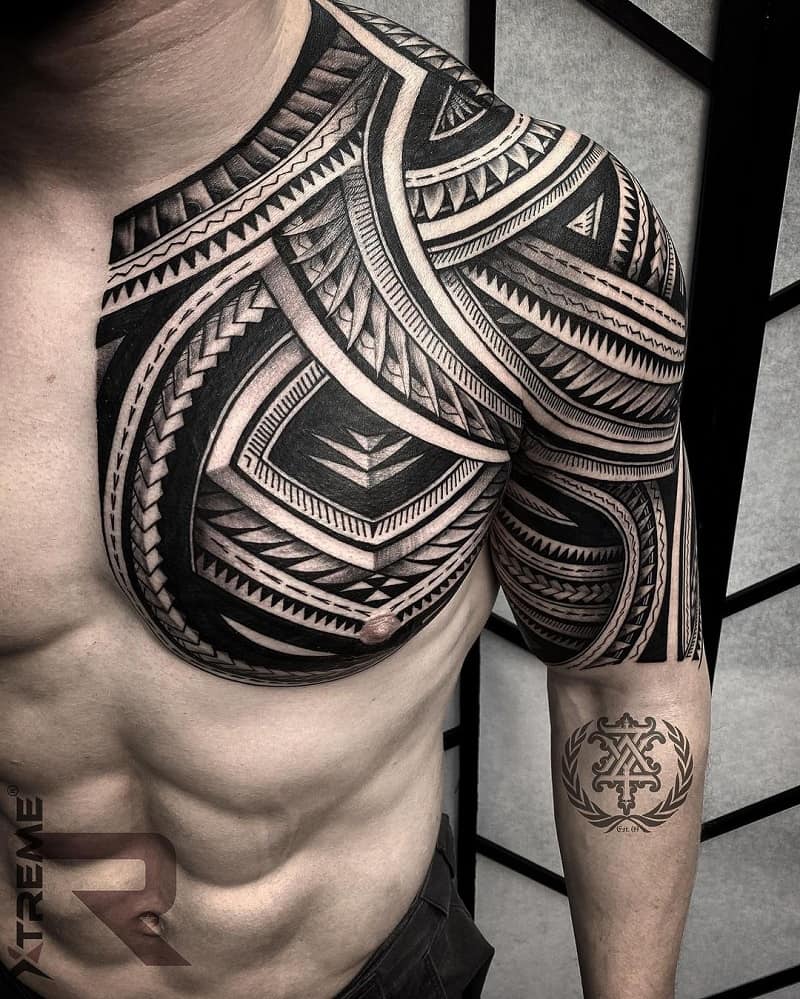
The people of Samoa belong to the Pacific island, which includes Polynesia, Fiji, Borneo, Hawaii and other countries, cultures and tribes (including Maori and Haida). Like the traditional Maori tattoo, Samoan tattoos have been culturally adapted over the centuries.
These tattoos are considered to belong to the tribal group of tattoos which, as we have already mentioned, should not be used by anyone who does not belong to the culture and heritage of the Samoan people.
- Kanji Tattoos
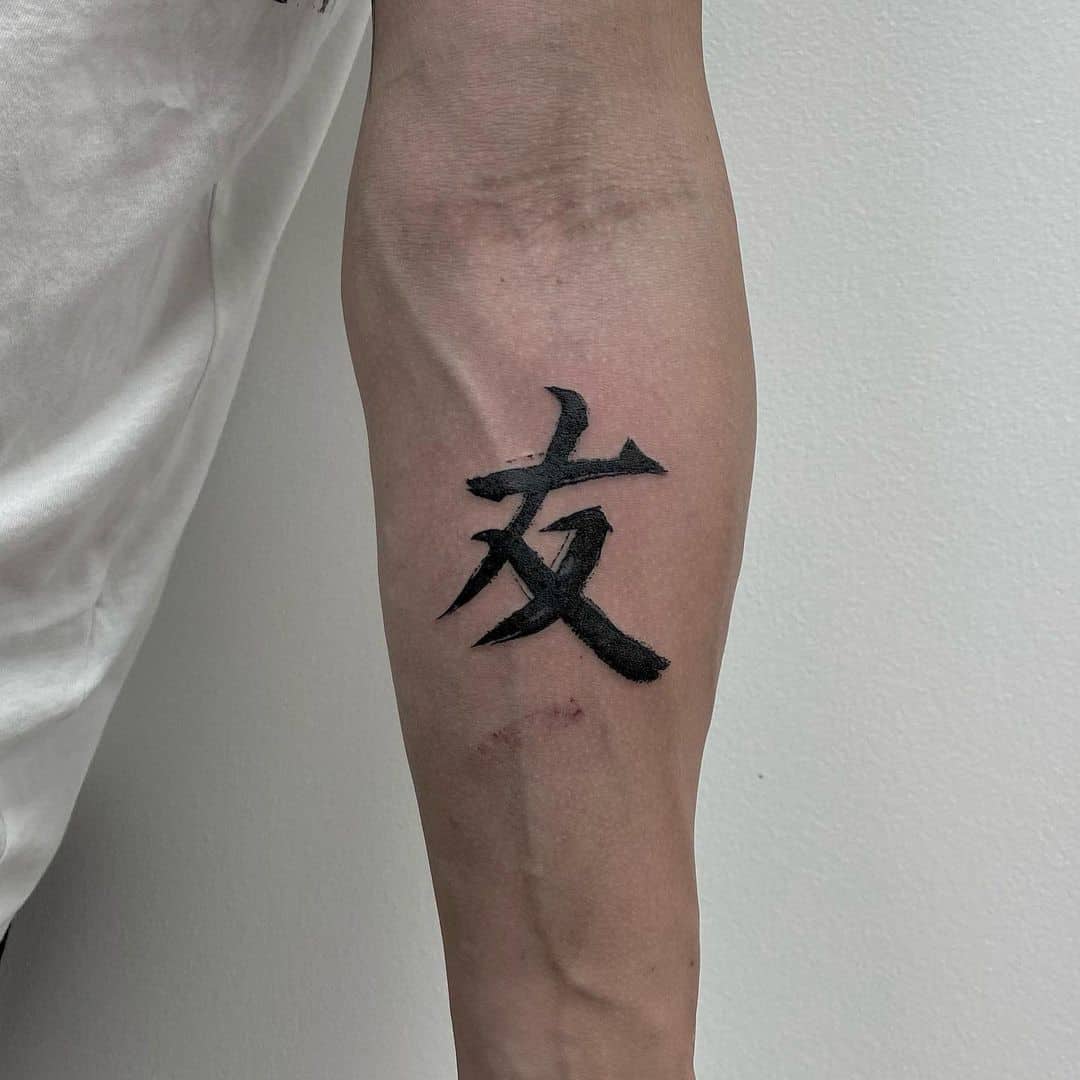
When done by someone who speaks the language and reads the symbols, or simply understands the culture and meaning of the symbol, kanji tattoos may not fit the culture.
However, when it is done by someone who has no idea what the symbol means (or even gets tattooed by mistake), then the tattoo is usually considered a sign of cultural appropriation, ignorance, and disrespect.
Final thoughts
It is always important to make an informed choice. When you want to get a tattoo and think of different designs, be sure to do proper research and see if the designs are culturally appropriate or borrowed from different people and their traditions.
Just google the design if you doubt it. Information is now available to everyone, anywhere. Thus, there are no excuses when you get a culture-appropriate tattoo. Ignorance in this case is not a sufficient excuse; just get information and education. It's pretty fast and easy.
Leave a Reply